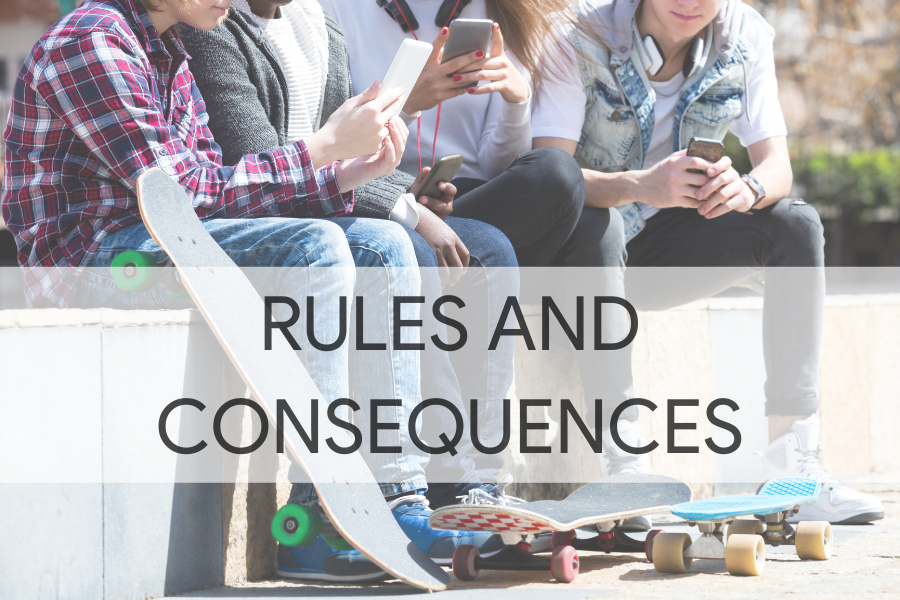Parents need to give their teenagers clear and defined rules and consequences. It is important that there are known consequences for disobedience to set rules. When setting these consequences, the penalty your voice must be one that you are willing to enforce. If you threaten to leave the grocery store because of their behavior, are you ready to take them home and return to the store later by yourself? Are your consequences fitting for the crime, or are they too severe and hard to stay consistent?
As parents, it is easy to get into the habit of assuming that your Child will understand and accept the effects of breaking the rules, when, in fact, your children will always be pushing to have their way. It is a natural process for children to test the boundaries of their surrounding adults; if you don’t put effort into ensuring the consequences are followed, neither will they.
Explain the Consequences
Having my own children and working with teenagers throughout the years, I have worked with many parents who live in the gray area when making rules and enforcing consequences. They often lean too hard on the idea that their Child knows the parent’s expectations and the consequences that follow if the expectation isn’t met.
I will use a straightforward rule that most parents voice to their Child; children must clean up their room before leaving for school. First, you must have an answer to “why” because as children and teenagers, they will ask. Let them know the purpose of why it is important to you that their room is cleaned before school each morning.
Second, make them aware of the consequence of not following through with this rule. Tell them that lights out will come earlier that night, or that they will not be able to go out and play after school.
Lastly, follow through with whatever consequence you set with them, be specific, and clarify. Throughout the process of setting rules and consequences, remember to be specific and explain exactly your expectations.
Define the Rules
Staying with the same example of keeping their room clean, your Child must know your definition of clean. I cannot emphasize enough the importance of clarity when dealing with children of all ages. Children, especially teenagers, are master manipulators and will take advantage of any wiggle room or unclear areas you allow them.
When you are vague with your rules and/or consequences, you leave interpreting what you said to your children. To continue with our previous example, you come home from work, and their room has not been cleaned. You reiterate the consequence of the lights out before 10:00 pm (normal time), and they accept it without argument; at 9:45 pm, you see the lights on and hear music playing.
You enter the room angrily since they had initially been accepted their consequence, you start yelling and asking why they are not in bed yet? Out of your Child’s mouth comes, “I was just getting ready to turn everything off!” Now you’re stuck; it’s still before 10 pm, and since you were not specific as to the time, they are still within following the consequence. Your Child’s interpretation of lights out maybe just that lights out. The computer, music, and television may not be in their definition of lights out.
Remember, master manipulators; you must be detailed with the consequences.
While we have focused on only one simple rule, the simple rules may need the most clarity. The breaking of rules against family morals will come with more severe consequences; therefore, parents must strictly enforce it. No matter what standards you are setting or consequences you are implementing, clarity and consistency are vital.

